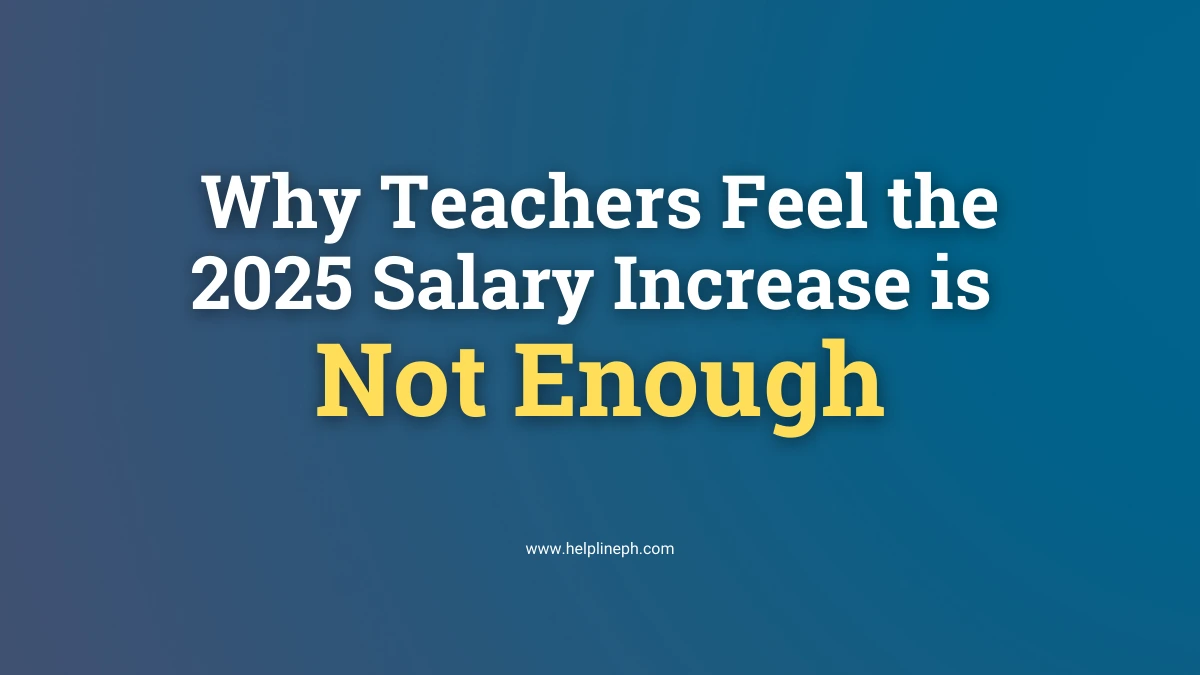Recently, President Marcos announced Executive Order No. 64, approving a salary increase for teachers in 2025. Many teachers expressed gratitude for this development, but a significant number are still dissatisfied, feeling that the raise is insufficient. Understanding the reasons behind their dissatisfaction can help us appreciate their concerns. Here are the key reasons why teachers feel this way:
1. Minimal Increase Compared to Expectations
While there has been a study and funding allocation for the salary increase, the actual raise is only slightly more than previous increments. Teachers expected a more substantial boost to reflect their hard work and dedication.
I remember talking to my friend Maria, a high school teacher, who shared her excitement about the potential salary increase last year. She had hoped it would finally allow her to save enough for her son’s college education. But when she saw the actual numbers, her excitement quickly turned into disappointment. Like many others, she had hoped for more significant financial relief.
2. Deductions Eat Into the Raise
The 1,500-peso increase is subject to taxes and other deductions, leaving teachers with only a small net gain in their take-home pay. This means that the actual amount they receive is much less than what is announced, diminishing the impact of the raise.
For instance, after taxes and mandatory contributions like GSIS and PhilHealth, teachers often receive far less than the headline amount. This situation reminds me of how frustrating it can be when you receive a paycheck that’s significantly less than what you anticipated. Have you ever felt that sting of seeing a smaller amount than expected on payday?
3. Inflation Outpaces Salary Growth
One of the significant issues teachers face is that the rate of inflation is higher than the rate of their salary increase. This means that, despite the raise, the cost of living continues to rise faster, making it difficult for teachers to keep up with their expenses.
According to the Philippine Statistics Authority, the inflation rate reached 6% in 2023, while teachers only saw a modest 3% salary increase. This gap means that even with a raise, many teachers are effectively earning less than before when accounting for the higher cost of living. How can we expect teachers to focus on educating our children when they are constantly worried about making ends meet?
4. Salary Disparity with Other Countries
Filipino teachers earn significantly less than their counterparts in other countries. This disparity is disheartening, especially considering the dedication and effort they put into educating the future generations of the Philippines.
A study by the United Nations Educational, Scientific and Cultural Organization (UNESCO) highlights that Filipino teachers earn, on average, only 60% of what teachers in neighboring countries like Thailand and Malaysia make. This significant disparity can discourage talented individuals from entering or remaining in the teaching profession.
5. Overworked and Underpaid
Teachers in the Philippines often take on numerous tasks beyond their teaching duties, including extensive paperwork and additional responsibilities not directly related to teaching. Despite this heavy workload, their compensation does not reflect the amount of work they do, leaving many feeling undervalued.
Reflecting on this, I remember my mother, who was a teacher for over 30 years. She often stayed up late, marking papers and preparing lesson plans, long after her official work hours. She loved her students and her job but often lamented how her salary didn’t match the effort and passion she poured into her work. It makes me wonder, how many dedicated educators are silently struggling under similar conditions?
Conclusion
Teachers are not complaining for the sake of complaining; they want the government to recognize their crucial role and prioritize their needs. By addressing these concerns, the government can ensure that teachers are adequately compensated and motivated to continue their invaluable work in shaping the minds of the youth. It’s essential to invest in education by supporting teachers, as they are vital in nurturing and developing future leaders of the nation. – Mark | Helpline PH






